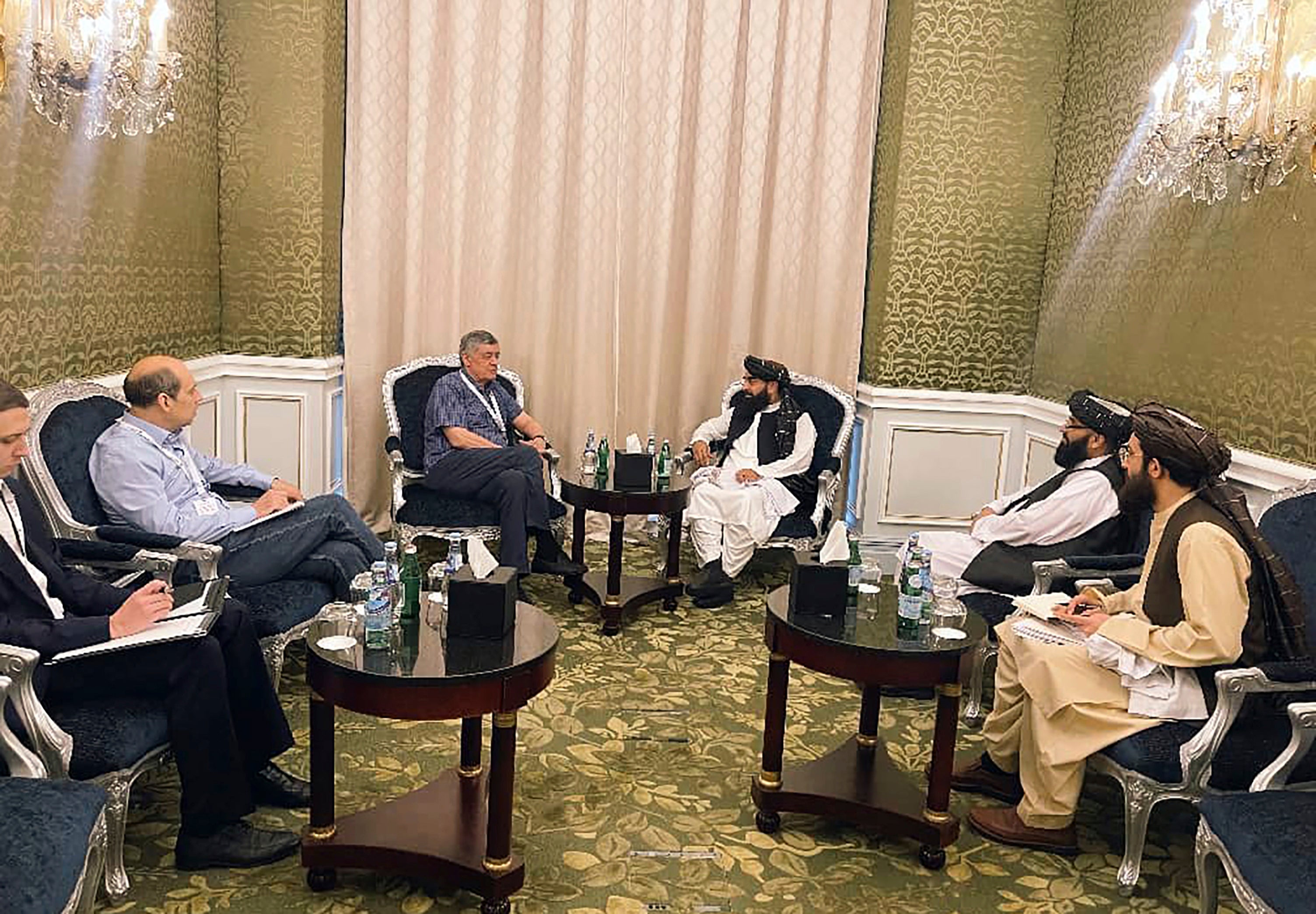UN-led meeting in Qatar with Afghan Taliban is not a recognition of their government, official says
A U

Your support helps us to tell the story
From reproductive rights to climate change to Big Tech, The Independent is on the ground when the story is developing. Whether it's investigating the financials of Elon Musk's pro-Trump PAC or producing our latest documentary, 'The A Word', which shines a light on the American women fighting for reproductive rights, we know how important it is to parse out the facts from the messaging.
At such a critical moment in US history, we need reporters on the ground. Your donation allows us to keep sending journalists to speak to both sides of the story.
The Independent is trusted by Americans across the entire political spectrum. And unlike many other quality news outlets, we choose not to lock Americans out of our reporting and analysis with paywalls. We believe quality journalism should be available to everyone, paid for by those who can afford it.
Your support makes all the difference.A United Nations-led meeting held in Qatar with the Taliban on increasing engagement with Afghanistan does not translate into a recognition of their government, a U.N. official said Monday.
The gathering on Sunday and Monday in Qatar's capital of Doha with envoys from some two dozen countries was the first time that representatives of the Afghan Taliban administration attended such a U.N.-sponsored meeting.
The Taliban were not invited to the first meeting, and U.N. Secretary-General Antonio Guterres said they set unacceptable conditions for attending the second one, in February, including demands that Afghan civil society members be excluded from the talks and that the Taliban be treated as the country’s legitimate rulers.
Ahead of Doha, representatives of Afghan women were excluded from attending, paving the way for the Taliban to send their envoys — though the organizers insisted that demands for women’s rights would be raised.
“I would like to emphasize that this meeting and this process of engagement does not mean normalization or recognition,” Rosemary A. DiCarlo, a U.N. official for political and peacebuilding affairs said Monday.
“My hope is that the constructive exchanges on the various issues over the last two days have moved us a little closer to resolving some of the problems that are having such a devastating impact on the Afghan people,” she added.
Zabihullah Mujahid, chief Taliban government spokesman who headed the delegation to Doha, said there was opportunity for them to meet with representatives of various countries on the sidelines of the gathering.
He added that the messages from the Taliban “reached all participating” countries at the meeting. Afghanistan needs cooperation with the private sector and in the fight against drugs, he also said. “Most countries expressed their willingness to cooperate in these areas.”
The Taliban seized power in August 2021 as United States and NATO forces were in the final weeks of their pullout from Afghanistan following two decades of war. No country officially recognizes the Taliban and the U.N. has said that recognition remains practically impossible while bans on female education and employment remain in place.
However, some participants, including Canada, expressed disappointment over the exclusion of women and civil society representatives.
"Canada is extremely disappointed that the U.N. organizers have excluded non-Taliban Afghan participants, including women’s advocates, religious and ethnic minorities, and human rights groups from participating in the meeting’s main sessions,” David Sproule, Canada’s special representative for Afghanistan, said in a statement.
DiCarlo, the U.N. official, said that "while women and civil society were not sitting across the table form the de facto (Taliban) authorities in last two days, we made their voices heard ... civil society has a rightful role to play in shaping Afghanistan’s future.”